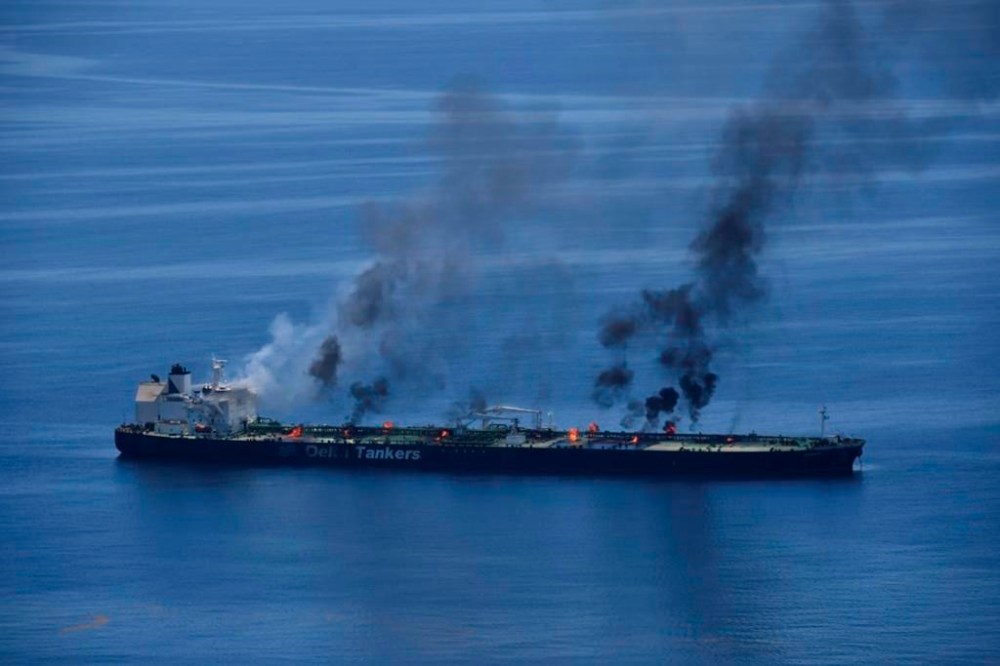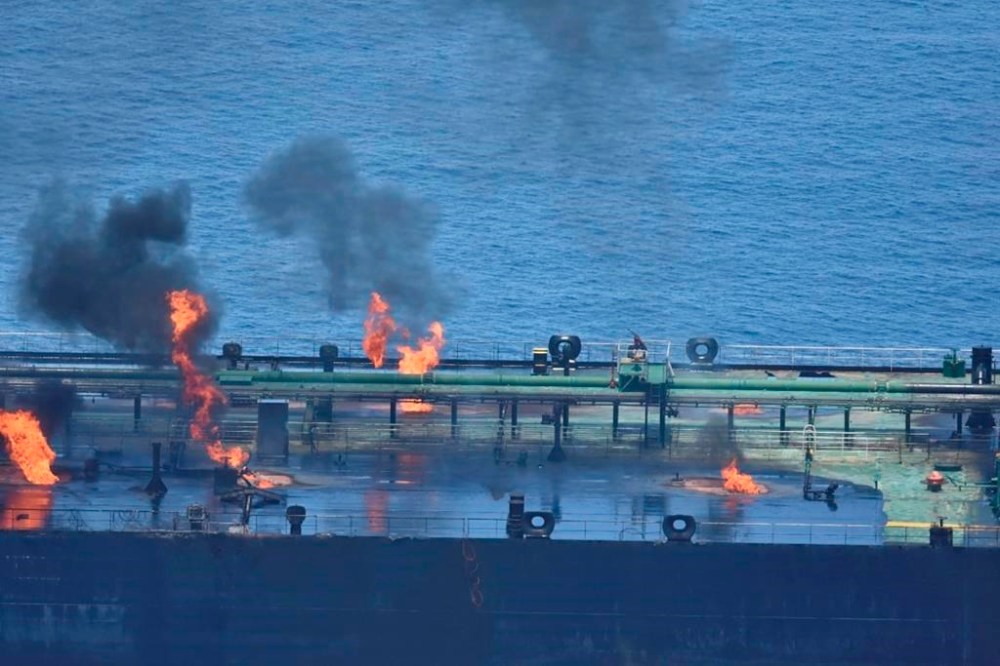Iran says Yemen’s Houthi rebels will allow tugboats and rescue ships to aid tanker ablaze in Red Sea
Advertisement
Read this article for free:
or
Already have an account? Log in here »
To continue reading, please subscribe:
Monthly Digital Subscription
$1 per week for 24 weeks*
- Enjoy unlimited reading on winnipegfreepress.com
- Read the E-Edition, our digital replica newspaper
- Access News Break, our award-winning app
- Play interactive puzzles
*Billed as $4.00 plus GST every four weeks. After 24 weeks, price increases to the regular rate of $19.00 plus GST every four weeks. Offer available to new and qualified returning subscribers only. Cancel any time.
Monthly Digital Subscription
$4.75/week*
- Enjoy unlimited reading on winnipegfreepress.com
- Read the E-Edition, our digital replica newspaper
- Access News Break, our award-winning app
- Play interactive puzzles
*Billed as $19 plus GST every four weeks. Cancel any time.
To continue reading, please subscribe:
Add Free Press access to your Brandon Sun subscription for only an additional
$1 for the first 4 weeks*
*Your next subscription payment will increase by $1.00 and you will be charged $16.99 plus GST for four weeks. After four weeks, your payment will increase to $23.99 plus GST every four weeks.
Read unlimited articles for free today:
or
Already have an account? Log in here »
Hey there, time traveller!
This article was published 28/08/2024 (416 days ago), so information in it may no longer be current.
UNITED NATIONS (AP) — Yemen’s Houthi rebels have agreed to allow tugboats and rescue ships to assist a Greek-flagged oil tanker that remains ablaze in the Red Sea “in consideration of humanitarian and environmental concerns,” Iran’s U.N. Mission said late Wednesday.
The Pentagon said Tuesday that attempts by an unidentified “third party” to send two tugboats to the stricken Sounion were blocked by the Iranian-backed Houthis. Air Force Maj. Gen. Pat Ryder told reporters that the Houthis’ actions demonstrate “their blatant disregard for not only human life, but also for the potential environmental catastrophe that this presents.”
Last week’s attack on the Sounion marked the most serious assault in weeks by the Houthi rebels, who continue to target shipping through the Red Sea corridor over the Israel-Hamas war in the Gaza Strip. The attacks have disrupted the $1 trillion in trade that typically passes through the region, as well as halted some aid shipments to conflict-ravaged Sudan and Yemen.

Iran’s U.N. Mission claimed the Sounion was carrying oil to “the Israeli regime.”
Ryder said the Sounion appears to be leaking oil into the Red Sea, home to coral reefs and other natural habitats and wildlife.
The Sounion has 150,000 tons of crude oil aboard and represents a “navigational and environmental hazard,” the European Union’s Aspides naval mission in the Red Sea said last Thursday.
Iran’s U.N. Mission said in Wednesday’s statement that following the fire on the Sounion “and the subsequent environmental hazards,” several countries it didn’t identify reached out to the Houthis “requesting a temporary truce for the entry of tugboats and rescue ships into the incident area.”
“Ansar Allah has consented to this,” the Iranian Mission said, using the group’s official name.
It gave no details on how soon the truce would take place.
The Sounion came under repeated attack last week. A French destroyer operating as part of Operation Aspides later rescued its crew of 25, as well as four private security personnel, and took them to nearby Djibouti.

The Houthis have targeted more than 80 vessels with missiles and drones since the war in Gaza started in October. They seized one vessel and sank two in the campaign that also killed four sailors. Other missiles and drones have either been intercepted by a U.S.-led coalition in the Red Sea or failed to reach their targets.
The rebels maintain that they target ships linked to Israel, the U.S. or the U.K. to force an end to Israel’s campaign against Hamas in Gaza. However, many of the ships attacked have little or no connection to the conflict, including some bound for Iran.
——
Weissenstein reported from New York

